Every year for over a decade I've accidentally run a weird sociological experiment. In one of the trimesters for the advanced improv course I teach, I deal with students setting up their own show. More than just playing scenes, this means they need to program a set, work on their hosting, and find the right chemistry. The strangest thing? Over hundreds of students, the results are always the same. And the results are weird.
The actual class is always fairly big and tends to range from 28-36 students. This is fine because we have two teachers working on the course at all times, which means that we divide the class into two groups. Division is done with some respect to variety, both in the sense of play styles and the actors themselves, and otherwise is fairly random. So then how is it possible that for all those years, we always get two different groups, and they're always different in the exact same way?
Group A – the hens, the alphas, the passionate players who want to make a mark. Early run-throughs of shows are filled with energy, zaniness and irreverence, but they tend to be shoddy and no one's really listening to each other. These groups also tend to have the most interpersonal conflict as people figure out how to work together in pursuit of a good show. In the end, they slow down, listen, and find the right shape. Then they can inject some of that life-force back into proceedings.
Group B - the listeners, the thoughtful debaters who'd rather sit and talk through everything before stepping on stage. They're technical, considerate, and scenes work right off the bat. And often enough, during their first run-throughs... it's just not very fun. The comedy's there but it has no zest: the laughter's polite, the scenes feel a bit linear because they're so carefully constructed. We throw energy into it until people finally stop being so thoughtful and start making the show come to life.
In the end, these two shows often end up in a balanced place where people feel relaxed but energized, playful but considerate. But I've always been the person in charge of distributing students, and I've never in all those years thought I was grouping people based on the descriptions I just laid out. Instead, something else takes over: the chemistry turns into the group's vibe. And the vibe... that takes over everything else.
I'm fully convinced that if I made the distributions in any other way, the exact same thing would happen, although I'm still puzzled on how I always end up with one of each. For these players, who often have decent short-form or long-form experience already, thinking about things on a group level is completely new. In all their other presentations, it's the teachers that program their sets. They decide upon players that would match well in scenes and generally inject some upbeat energy into the show by hosting everything. But now, that safety net's gone, and suddenly the general mood becomes a consideration.
I come from the exact opposite background: fifteen years ago, we didn't have any training. We were just a bunch of actors who had played in stage comedies, had good chemistry together, and moreover, we just liked each other. We hung out outside of rehearsals. Most of the magic was generated over beers, talking about life, musing over things we loved and why we loved them. Then we took that chemistry on stage. During this time, to his credit, we had a trainer who was desperately trying to teach us some good technique. But technique was just the mode of delivery for the comedy, and the comedy was the real show, and those jokes, the characters, the storylines, all came back down to the vibe. Some old reviews from those days in local newspapers talked about how it felt like 'being invited to a party' – and no one really talked about the improvisation itself. We knew the smoother we could make the technique, the better the party felt. We also knew that whatever made our shows special, the thing that was responsible for the connection our audiences felt, wasn't the technique.
This can be frustrating, because it's one thing to refine someone's hosting to the point where it feels smooth, or to teach someone the easiest way to play a game, or to instruct them on how to be a good scene partner. But you can't teach a vibe. It's hard to even define it. The way that I think of it is that if you take on-stage chemistry, mix it with tone and purpose, then throw in whatever your audience and even your theater is, there's your vibe.
Some of these things you can control, but you can only control them in order. It obviously starts with chemistry. From that chemistry emerges the tone of the show – if the chemistry is really good, there's never really any debate on what the tone should be. It's a naturally emerging result of playing together. If you find yourself having to navigate your group's tone over and over again, you probably have deeper problems. From that tone you attract certain audiences, which amplify everything tenfold. With the right crew and audience, you can even overcome difficult environments – plenty of times have I played in outdoor environments where the sound system couldn't overpower whatever else was happening. In those cases, the actors just looked at each other and said: "This party's just for us." And in many cases, people understood what we were doing and joined the party anyway.
But so much of it you can't control. The way that many improv communities are set up, it's basically a hobby that people are practicing and you try to find the people you get along with, that you agree are solid improvisers, and then you try and find a stage together. But getting along with and great chemistry are definitely not the same thing. Sometimes, it's even one or the other (but that's a story for another time).
So what do you do? You look at things you love where chemistry is the overriding reason it works. It's all in the eye of the beholder, but popular opinions include the original U.S. edition of Whose Line Is It Anyway – all great performers, but it's the combination that really sells it – the cast of Friends, or even non-comedic shows like Star Trek: The Next Generation (famously, they're all godfathers and godmothers to each other's children even forty years later). Take away the scene for a moment, all that production value – hell, even take away the audience – and just look at these people standing next to each other. What do you feel when everything else is taken away? If the answer is that you still feel something... then baby, you've got a stew going.

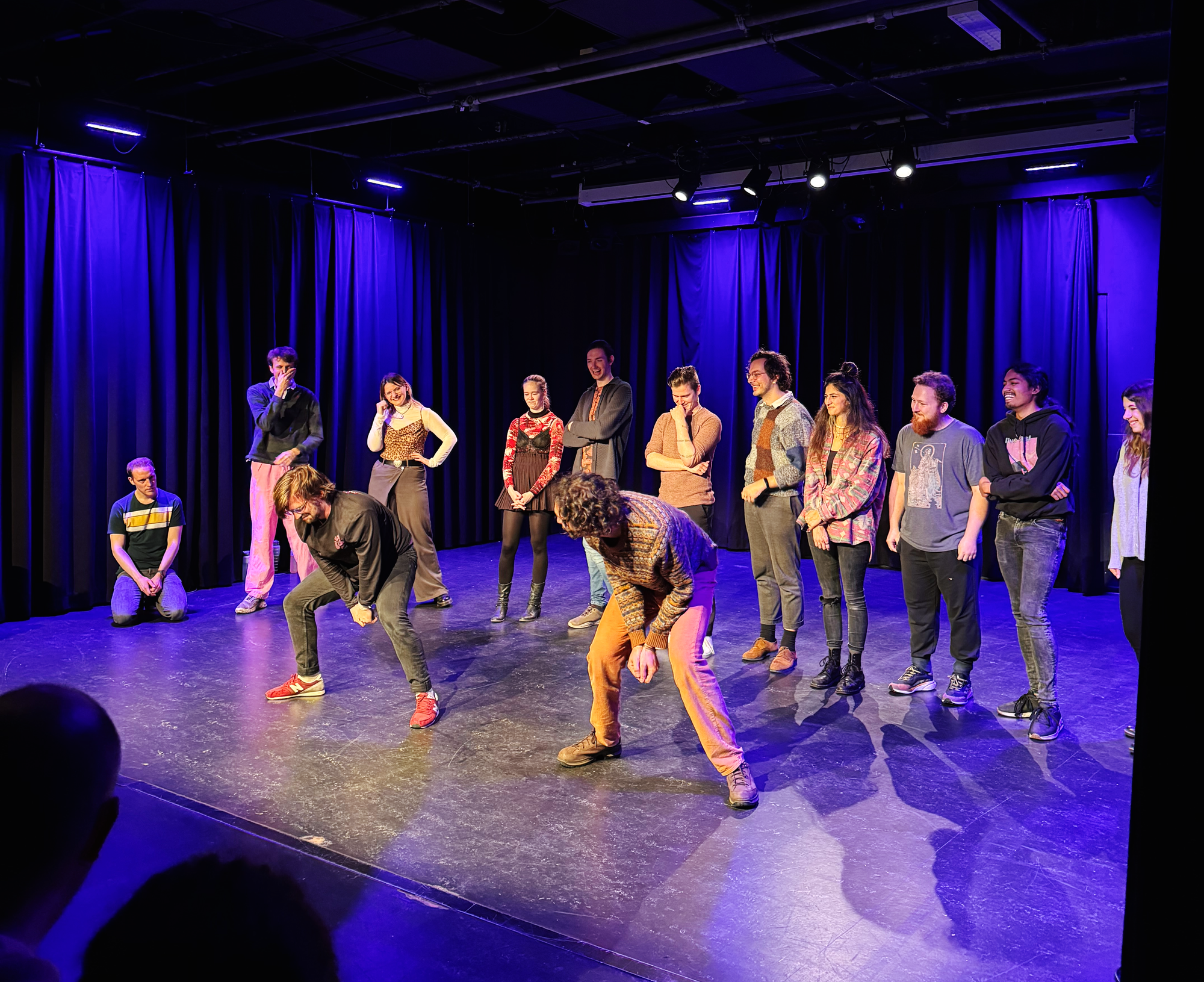
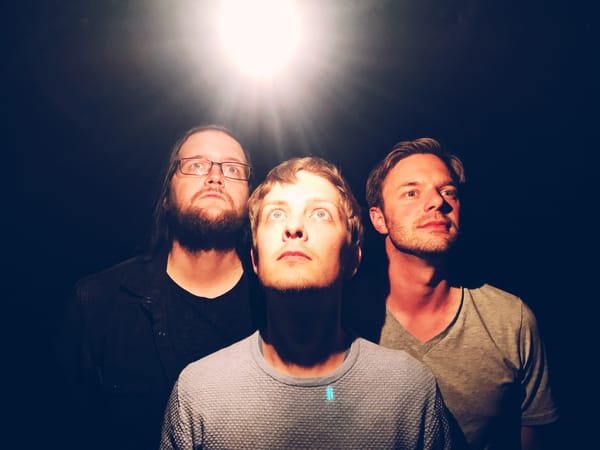

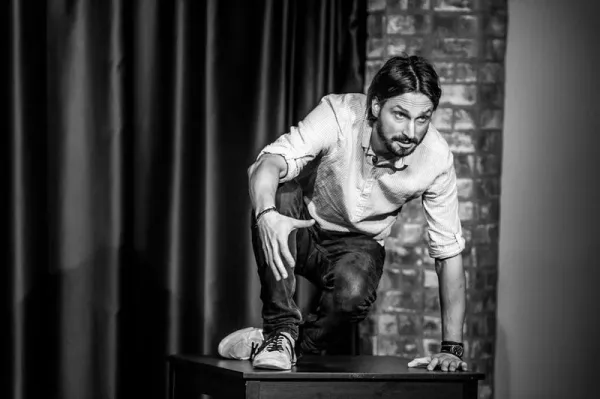
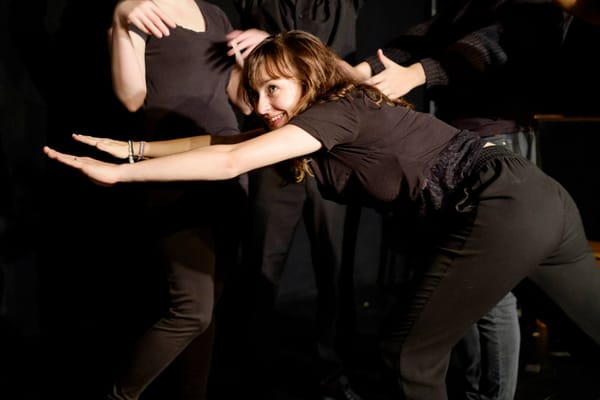

Member discussion